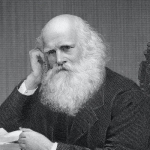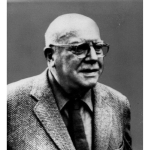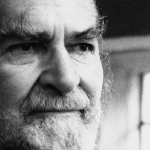Just by the wooden brig a bird flew up,
Frit by the cowboy as he scrambled down
To reach the misty dewberry—let us stoop
And seek its nest—the brook we need not dread,
'Tis scarcely deep enough a bee to drown,
So it sings harmless o'er its pebbly bed
—Ay here it is, stuck close beside the bank
Beneath the bunch of grass that spindles rank
Its husk seeds tall and high—'tis rudely planned
Of bleachèd stubbles and the withered fare
That last year's harvest left upon the land,
Lined thinly with the horse's sable hair.
Five eggs, pen-scribbled o'er with ink their shells
Resembling writing scrawls which fancy reads
As nature's poesy and pastoral spells—
They are the yellowhammer's and she dwells
Most poet-like where brooks and flowery weeds
As sweet as Castaly to fancy seems
And that old molehill like as Parnass' hill
On which her partner haply sits and dreams
O'er all her joys of song—so leave it still
Yet in the sweetest places cometh ill,
A noisome weed that burthens every soil;
For snakes are known with chill and deadly coil
To watch such nests and seize the helpless young,
And like as though the plague became a guest,
Leaving a houseless home, a ruined nest—
And mournful hath the little warblers sung
When such like woes hath rent its little breast.



















Comment form: